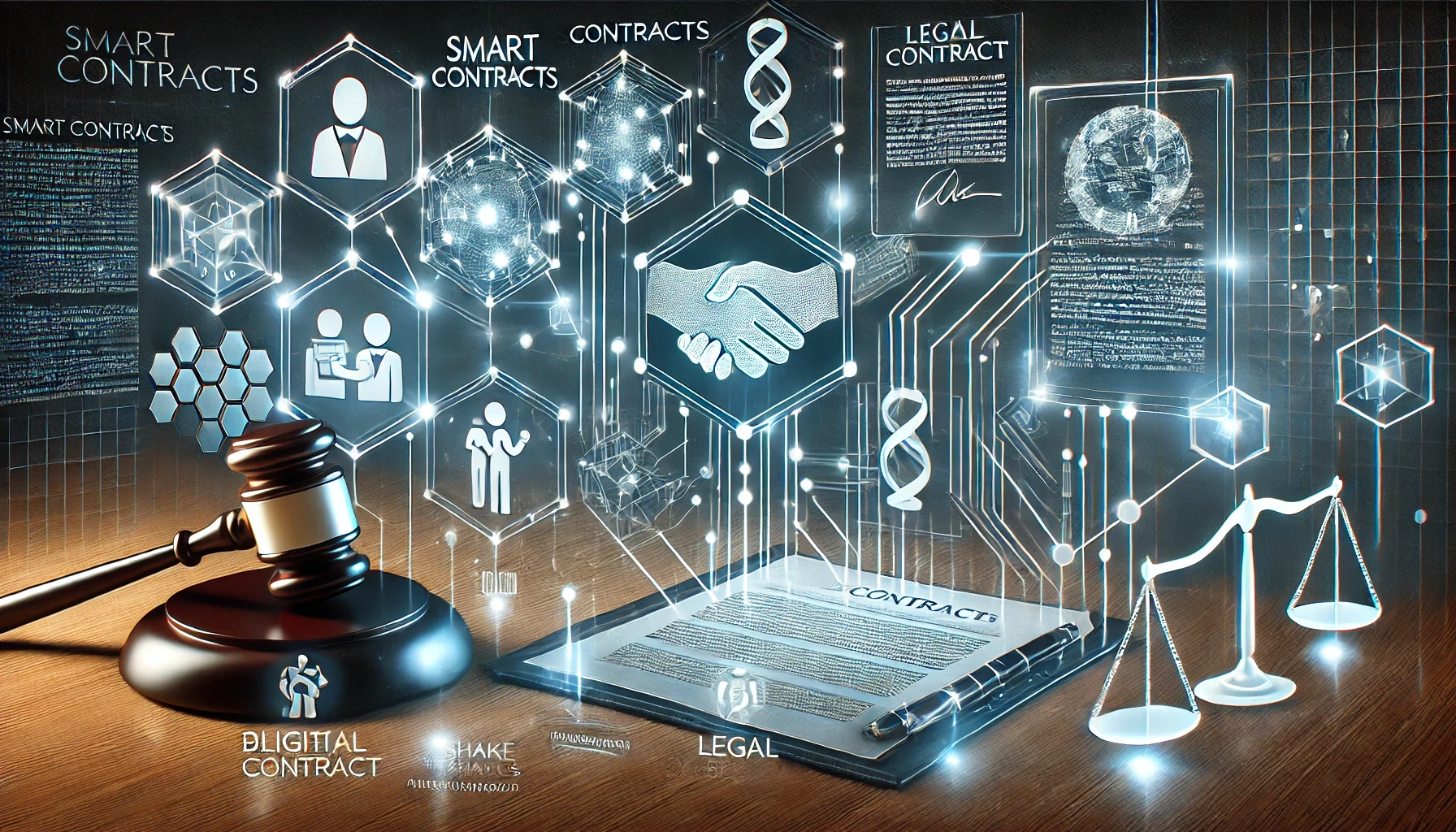What Are Smart Contracts?
Smart contracts are digital agreements that automatically execute when predefined conditions are met. Built on blockchain technology, they eliminate the need for intermediaries, reduce costs, and ensure transparency. Examples include automated payments, supply chain management, and decentralized finance (DeFi) protocols.
The Legal Enforceability of Smart Contracts
Are Smart Contracts Legally Binding?
In many jurisdictions, smart contracts can be considered legally binding if they meet the basic requirements of a traditional contract:Offer and Acceptance: The parties must agree to the terms.
Consideration: There must be an exchange of value.
Intent to Create Legal Relations: The parties must intend for the contract to be enforceable.
However, the unique nature of smart contracts raises questions about how these elements are interpreted.
Challenges to Enforceability:
Ambiguity in Code: Unlike traditional contracts, smart contracts are written in code, which may not always capture the parties’ intentions clearly.
Jurisdictional Issues: Blockchain operates globally, but laws vary by country, making it difficult to determine which jurisdiction applies.
Irreversibility: Once executed, smart contracts cannot be easily altered, even if there’s an error or dispute.
How Do Smart Contracts Fit into Existing Legal Frameworks?
Recognition by Law:
Some countries, like the United States and the United Kingdom, have started recognizing smart contracts as legally enforceable. For example, the U.S. state of Arizona passed a law explicitly validating smart contracts.Integration with Traditional Contracts:
To address potential gaps, many smart contracts are paired with traditional legal agreements. These “hybrid contracts” combine the efficiency of code with the flexibility of written terms.Role of Courts:
Courts are beginning to address disputes involving smart contracts. However, judges often lack the technical expertise to interpret code, leading to calls for specialized blockchain courts or mediators.
Key Legal Considerations for Smart Contracts
Code is Law?
The phrase “code is law” suggests that the code itself governs the agreement. However, this principle clashes with traditional legal systems, which prioritize fairness and intent over strict adherence to terms.Dispute Resolution:
Smart contracts often lack mechanisms for resolving disputes. Some platforms are integrating arbitration services, but this remains an evolving area.Regulatory Compliance:
Smart contracts must comply with relevant laws, such as data privacy regulations (e.g., GDPR) and financial regulations (e.g., anti-money laundering laws).
The Future of Smart Contracts and the Law
As smart contracts become more widespread, legal systems will need to adapt. Potential developments include:
Standardized Legal Frameworks: Governments may create specific laws to govern smart contracts.
Smart Legal Contracts: These would combine code with natural language, making them easier to interpret and enforce.
Blockchain Courts: Specialized courts or arbitration systems could handle disputes involving smart contracts.
How to Ensure Your Smart Contract is Enforceable
Consult Legal Experts: Work with lawyers who understand both blockchain technology and contract law.
Use Hybrid Contracts: Pair smart contracts with traditional legal agreements to address potential gaps.
Test Thoroughly: Ensure the code accurately reflects the parties’ intentions and complies with relevant laws.
Include Dispute Resolution Mechanisms: Build in provisions for arbitration or mediation in case of disputes.
Conclusion
Smart contracts represent a significant shift in how agreements are made and executed. While they offer numerous benefits, their legal enforceability remains a complex issue. By understanding the challenges and working within existing legal frameworks, businesses and individuals can harness the power of smart contracts while minimizing risks. As technology and law continue to evolve, smart contracts are poised to become a cornerstone of modern commerce.
